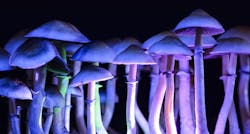Johns Hopkins Medicine, University of Alabama at Birmingham and New York University will pursue a multisite, three-year study to investigate the therapeutic effects of a classic psychedelic on smoking cessation, according to a news release from Johns Hopkins Medicine, which will lead the study.
JHU says this is the first NIH grant awarded in over a half century to directly investigate these therapeutic effects on tobacco addiction. The grant, totaling nearly $4 million, is funded by NIH’s National Institute on Drug Abuse.
Over the last 20 years, there has been a growing renaissance of research with classic psychedelics, which are the pharmacological class of compounds that includes psilocybin and LSD. These studies have been largely funded by philanthropy, resulting in impressive clinical findings for cancer-related existential distress, major depressive disorder and substance use disorders, JHU said.
Principal investigator Matthew Johnson, PhD, Professor in Psychedelics and Consciousness in the Department of Psychiatry and Behavioral Sciences at the Johns Hopkins University School of Medicine, initiated this line of research testing psilocybin for tobacco smoking cessation 13 years ago. A pilot study published in 2014 showed very high abstinence rates, much larger than those seen with traditional smoking cessation medications and therapies.
The current double-blind randomized trial involves psilocybin sessions as well as cognitive behavioral therapy — a type of talk therapy (psychotherapy) focused on pinpointing negative patterns of thought that can lead to behavioral and mental health problems. The researchers suggest psilocybin might help break the addictive pattern of thoughts and behaviors that has become ingrained after years of smoking, thus helping people to quit the habit.
Psilocybin, a compound found in so-called magic mushrooms, produces visual and auditory illusions and profound changes in consciousness. Combined with preparation and structured support, psilocybin has shown promise for treating a range of addictions and mental health disorders, according to JHU.

